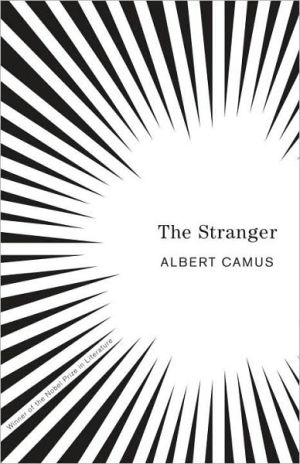The Stranger: A New Translation by Matthew Ward
Through the story of an ordinary man unwittingly drawn into a senseless murder on an Algerian beach, Camus explored what he termed "the nakedness of man faced with the absurd." First published in 1946; now in a new translation by Matthew Ward.\ \ \ "Matthew Ward has done Camus and us a great service. This is now a different and better novel for its American readers."--Chicago Sun Times\
Search in google:
Through the story of an ordinary man unwittingly drawn into a senseless murder on an Algerian beach, Camus explored what he termed "the nakedness of man faced with the absurd." First published in 1946; now in a new translation by Matthew Ward.Library JournalThe new translation of Camus's classic is a cultural event; the translation of Cocteau's diary is a literary event. Both translations are superb, but Ward's will affect a naturalized narrative, while Browner's will strengthen Cocteau's reemerging critical standing. Since 1946 untold thousands of American students have read a broadly interpretative, albeit beautifully crafted British Stranger . Such readers have closed Part I on ``door of undoing'' and Part II on ``howls of execration.'' Now with the domestications pruned away from the text, students will be as close to the original as another language will allow: ``door of unhappiness'' and ``cries of hate.'' Browner has no need to ``write-over'' another translation. With Cocteau's reputation chiefly as a cineaste until recently, he has been read in French or not at all. Further, the essay puts a translator under less pressure to normalize for readers' expectations. Both translations show the current trend to stay closer to the original. Marilyn Gaddis Rose, SUNY at Binghamton
\ Library JournalThe new translation of Camus's classic is a cultural event; the translation of Cocteau's diary is a literary event. Both translations are superb, but Ward's will affect a naturalized narrative, while Browner's will strengthen Cocteau's reemerging critical standing. Since 1946 untold thousands of American students have read a broadly interpretative, albeit beautifully crafted British Stranger . Such readers have closed Part I on ``door of undoing'' and Part II on ``howls of execration.'' Now with the domestications pruned away from the text, students will be as close to the original as another language will allow: ``door of unhappiness'' and ``cries of hate.'' Browner has no need to ``write-over'' another translation. With Cocteau's reputation chiefly as a cineaste until recently, he has been read in French or not at all. Further, the essay puts a translator under less pressure to normalize for readers' expectations. Both translations show the current trend to stay closer to the original. Marilyn Gaddis Rose, SUNY at Binghamton\ \








